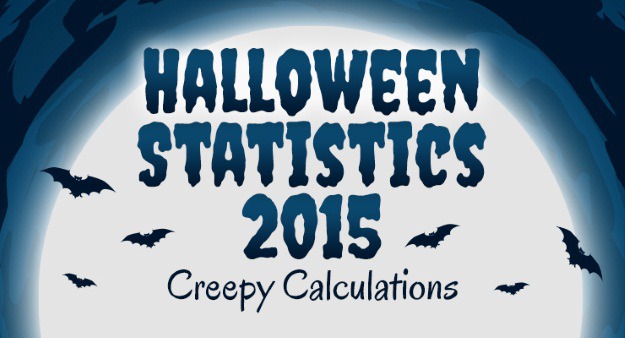Companies in the credit reporting services industry compile, manage and report credit information on consumers and businesses.
Major companies in the business credit reporting landscape such as Dun & Bradstreet®, Paynet®, Experian® Business and Equifax® Small Business, has extensive information on their websites regarding their services.
These companies can help businesses of all sizes decide whether to extend credit to customers and at what terms. The data they compile on millions of companies is formatted into what is known as a business credit report. These reports may be used by, or involve, a business as either a borrower seeking credit, as a report user or as a reporter of information.
Being listed with a business credit agency is crucial. For more than 20 years, the U.S. Federal Government has relied on business credit agency, Dun & Bradstreet, the DUNS® Number and critical data and insights to facilitate timely evaluations of, and awards to, all contractors conducting business across the global government procurement process.
Related Article: Business Credit Secrets: What You Don’t Know Can Hurt You
1. Manage Credit Risk
Running a business comes with handling various types of risk. When it comes to credit, how do you determine if a potential new business customer is a good or bad credit risk? Before deciding to trade with another company or agreeing to credit terms what steps do you take to lower the risk of customers defaulting on their financial obligation?
By utilizing business credit reports, you can discover the status of prospective customers’ payment history, business conditions, UCC filings, and other in-depth company details. Business credit reports provide access to key information needed for making sound financial business decisions about what businesses you work with and at what price.
There are several business credit reporting agencies that offer copies of business credit reports. Unlike consumer credit reports, which are available for free once annually, businesses must pay for their reports. Contact the business credit agency directly to obtain a copy of a report.
2. Marketing
Business credit reporting agencies provide the opportunity to create targeted business prospect lists from databases containing millions of businesses. For example, Dun & Bradstreet® contains over 240 million company records providing the ability to turn a large amount of data into high-quality information you need to grow your most valuable relationships.
With this data, a business can target the right companies and people to fill a marketing pipeline fast. Given the continual rate of business change, you need an up-to-date source of business leads and information to drive your business.
To take advantage of the marketing opportunities available contact a business credit agency directly to inquire about the types of sales & marketing solutions they provide.
3. Operations & Supply
Knowing the financial strength of suppliers is essential to managing the supply chain. Suppliers are fundamental to a business and selecting the ones that will be around for the long haul is essential. Business credit agencies provide the insight companies need to help assess a supplier’s risk of closing its doors with D&B credit reports of trusted supplier information and risk ratings.
For example, D&B’s Supplier Evaluation Risk Rating (SER Rating) predicts the likelihood that a supplier will end business operations or become inactive over the next 12 month period.
These types of tools enable companies to select and manage the most reliable suppliers to protect their business against risk, prevent business disruption, and meet diversity and compliance requirements. Business credit agencies allow companies to stay on top of all the factors that impact a supplier’s ability to deliver.
To certify, monitor and analyze suppliers contact a business credit agency directly to discover the tools available for managing risk, diversity, compliance and information.
Related Article: Supply and Demand: Effective Solutions for Supply Chain Management
4. Business Credit Management
Proactively managing and monitoring your company’s credit files to ensure its accurate and up-to-date helps to optimize future growth, from acquiring funding to gaining customers. Business credit monitoring also helps guard against identity theft by ensuring immediate action is taken when misuse or fraud occurs.
To monitor your reports regularly contact a business credit agency directly. Some products such as CreditSignal® allows companies to get free alerts to changes to your company’s D&B scores, including PAYDEX®.
5. Improve Debt Recovery
Reporting your transactional history with a business to a business credit agency gives other creditors notice of debts owed to your business. This not only allows other companies and credit grantors to know a company’s existing debt but also improves your company’s ability to recover debts owed.
The fact is businesses are more likely to pay on your accounts if they know that you report payment history to a business credit reporting agency.
Before becoming a trade data supplier to a business credit agency, consider the requirements and costs about your business needs. All agencies and businesses must follow state and federal laws concerning reporting credit.
Many of these third party agencies have guidelines or templates to aid your business in complying with these laws. Consider comparing business credit agencies by checking their fees and asking for all requirements.
With the power of data, business credit reporting agencies helps businesses manage business risk, find new customers and grow sales with reports, scores, ratings and online solutions.
You can get your company listed with Dun & Bradstreet by applying for a D-U-N-S Number on their website. It takes thirty days to receive your number, and there is no cost. However, to obtain your D-U-N-S Number in less than five days requires enrollment into their expedited D-U-N-S Number program that costs $229.
(via Business.com)
4 Unexpected Ways a Business Credit Reporting Agency Drives Business
7 years ago
No Comments






